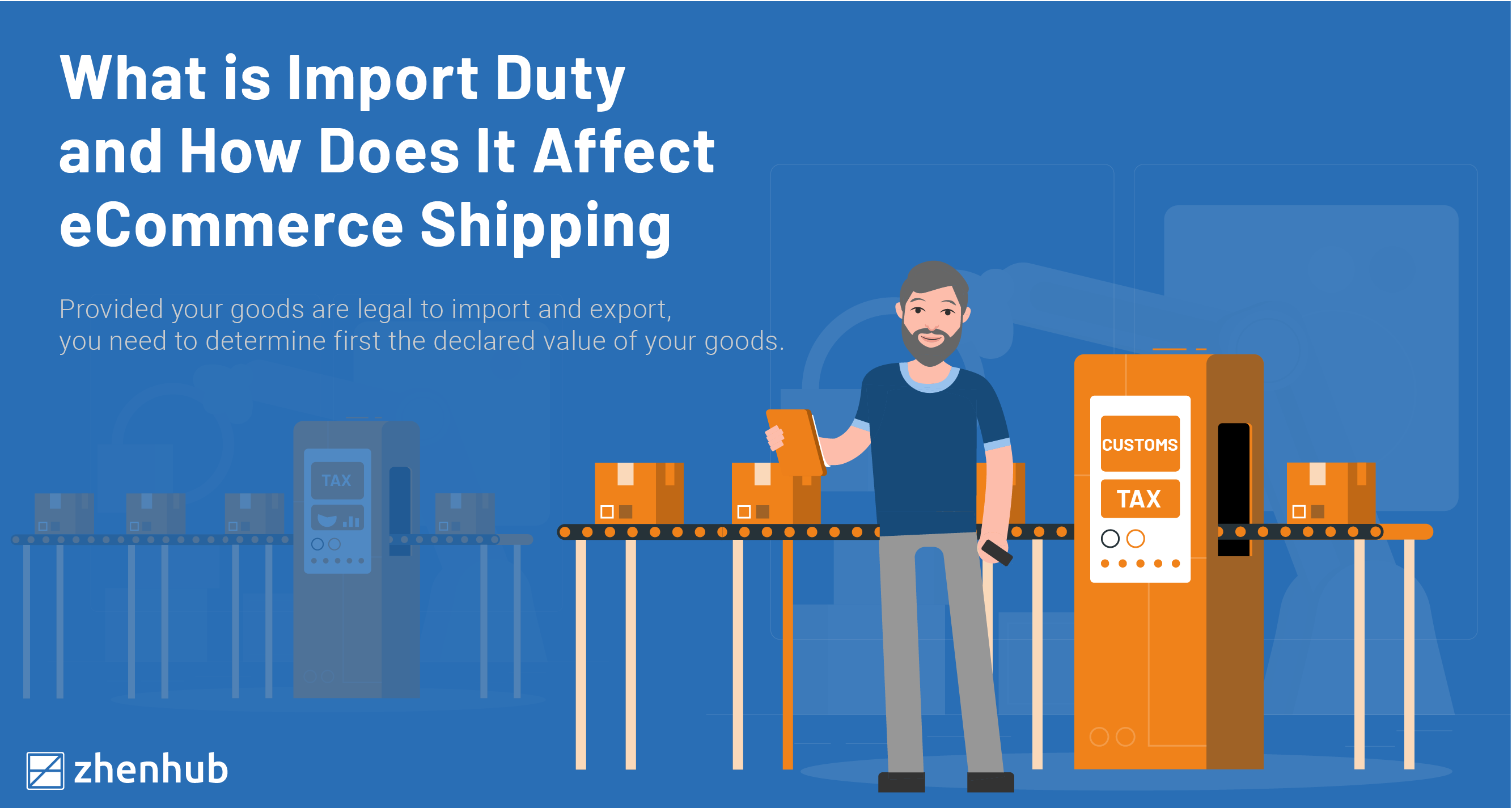
Import Duty and How It Affects eCommerce Shipping (Updated 2020)
Time to read: 3 minutes
What is Import Duty?
Whenever goods move across international borders, the importing country (or the country receiving the goods) charges the importer a tax as a means to earn revenue and protect local industries from foreign competition. Sometimes, the exporting country (the country sending the goods) may also charge the exporter a tax.
The tax imposed on the importation and exportation of goods is referred to as customs or import duty.
Each country has its own rules and regulations when it comes to:
- what is allowed to be imported and exported
- what threshold to begin charging customs duty at
- the rate of customs duty to be charged.
Why is Import Duty Imposed?
Import Duty is commonly imposed by the governing bodies of various countries on cross-border eCommerce shipping as a way to:
- make sure local businesses are protected, supported, and prioritized over international competitors;
- effectively control supply and demand chain of specific goods and products;
- help increase domestic or local revenue.
How Does Import Duty Affect Cross-Border eCommerce
As an online merchant, Import Duty plays a significant role in your pricing structure especially if you decide to expand and open your business to the global market.
In addition to rates, import duty can also affect eCommerce shipping as it can be a factor that will potentially increase transit or delivery time of shipped products.
Understanding customs duty will enable you to be more transparent with your customers. Managing their expectations in terms of pricing and shipping will lessen or even completely eliminate the probability of irate customers accusing you of hidden fees and blaming you for shipping delays.
How to Calculate Import Duty Taxes
Provided your goods are legal to import and export, you need to first determine the declared value of your goods – the dollar value of the product or commodity that is presented to customs for verification.
- If the declared value of your goods is below the relevant threshold, you do not owe anything in import duty. This is also called de minimis value, a valuation ceiling or threshold where in a particular item will not require import duty and is therefore entitled to immediate release.
- If the declared value of your goods is above the relevant threshold, you are required to pay import duty, which is either specific or charged on an ad valorem basis (based on the declared value of the goods).
- If customs determine your goods to be under-declared (the goods are worth more than you said they are), you will have to pay import duty according to the adjusted declared value and, in certain cases, also face fines.
To find out the threshold and the import duty rate for your goods in a specific country, head to that country’s official customs website (found easily with a quick Google search).
Here are the links to some of the more prominent eCommerce markets’ customs websites.
- United States of America
https://www.cbp.gov/trade/programs-administration/determining-duty-rates# - United Kingdom
https://www.gov.uk/trade-tariff - Canada
https://www.cbsa-asfc.gc.ca/trade-commerce/tariff-tarif/2018/html/tblmod-eng.html - Australia
https://www.homeaffairs.gov.au/trav/impo/clea - The Netherlands
https://www.belastingdienst.nl/wps/wcm/connect/bldcontenten/belastingdienst/individuals/abroad_and_customs/receiving_goods_from_abroad/from_organizations_and_companies/how_do_i_calculate_these_import_taxes - Singapore
https://www.customs.gov.sg/businesses/valuation-duties-taxes–fees/duties-and-dutiable-goods
Customs duties sometimes dig deep into margins, but the good news is there are options when it comes to who pays them – the seller or the customer.
You can also check out our updated list of Import Duty De Minimis Value per country to use as reference in relation to information about customs duty.
As you take your business global, updating how you approach your eCommerce shipping and pricing can be overwhelming since there is a lot more to consider. If you need any help breaking down your shipping and fulfillment process and requirements, we here at ZhenHub are more than confident and willing to assist you! Send us a message to request a free quote.